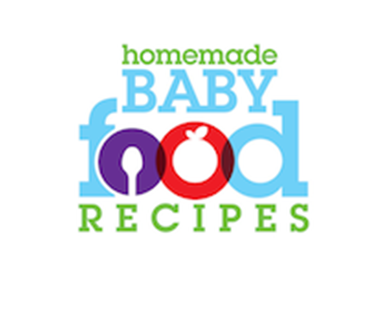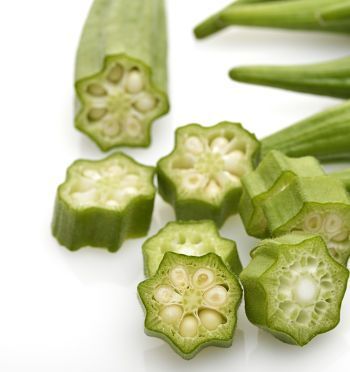Okra Baby Food Ideas – How to Prepare This Weird and Wonderful Veggie For Your Little One
Updated: Oct 05, 2023
Okra is available fresh, frozen or canned in many supermarkets around the world.
In fact, you may have even seen those strange, little green pods in the produce aisle and wondered what on earth they were!
Okra originates from Africa and is known by various names, including gumbo and – in the UK – Lady’s Fingers.
Some people love okra – it’s eaten virtually on a daily basis in parts of India and enjoyed breaded and deep fried in many southern States of America.
But there are many people that dislike okra with a passion – although it’s NOT usually because of the flavour!
When cooked, okra exudes what can only be described as a ‘gooey’ substance – and this sliminess turns many people off!
But the ‘goo-iness’ (or, to use the correct term, mucilage) has a couple of benefits that might be worth considering!
What does okra actually taste like?
That’s a very hard question to answer!
It has a very delicate flavour and is often compared to eggplant (aubergine), zucchini (courgette), asparagus and green beans!
And whilst we can see why people have made those comparisons, it doesn’t exactly taste like any of them!
Okra really does have a flavour all of its own that’s very hard to define (although not at all unpleasant).
When can my baby eat okra?
Okra is not listed as a common allergen, although, of course, ANY food can cause an allergic reaction and its always wise to be careful and check with your doctor before introducing new foods to your baby.
However, we don’t recommend okra as a first food for babies.
Why?
Well, it’s doesn’t puree to a particularly smooth texture – the skins tend to go ‘bitty’ and the abundant seeds inside the pods may present a challenge to younger babies.
For older babies (around 10 months to one year and beyond), okra makes a great addition to soups and stews.
Remember that ‘goo-iness’ we mentioned?
Well, that acts as a natural thickening agent – and the taste of the okra itself is so mild that, when mixed with other ingredients, it really just takes on the main flavour of the dish.
So is okra good for my baby?
Yes, it’s a good source of
What’s more, its high fibre content makes it a good food for relieving constipation – and it does so very gently.
This is because the mucilage we referred to earlier adds a certain ‘sliminess’ to baby’s stools, making them easier to pass.
We told you there were benefits to that goo!
Tips for buying and storing okra
When buying fresh okra, look for velvety, young pods no longer than 4 inches.
Longer pods can be very tough and woody – not at all pleasant to eat!
The pods should be free of bruising and – whilst they SHOULD be tender – they shouldn’t be soft.
Don’t wash okra unless you plan to use it immediately, or it will turn slimy and start to rot very quickly.
Keep okra in the fridge in a paper bag – it’s best eaten on the day of purchase but will keep for a maximum of 2-3 days.
To prepare okra
Always wash okra before use, under cold running water.
It can be eaten raw – some people add it to salads – but we wouldn’t recommend serving raw okra to your baby.
It may be cooked whole, but when adding it to baby food, we suggest ‘topping and tailing’ it, then cutting it crosswise into slices.
It doesn’t have to be peeled, but sometimes the skins can be a little tough and some people like to remove the top layer with a very sharp knife.
To cook okra by itself, just place it in a pan with a little water, bring to the boil, then reduce the heat and simmer, covered, for 3-5 minutes until tender (yes, okra cooks very quickly).
It may also be sauted in a little oil and tastes wonderful with the addition of a little ginger!
Okra baby food recipes
Aside from adding it to stews, casseroles and soup, you can try using okra in recipes calling for eggplant (aubergine) – it makes a great substitute.
Alternatively, try our recipes below.
Please note that they both contain tomatoes, another ingredient that many parents choose to introduce towards the end of baby’s first year as tomatoes sometimes cause diaper/nappy rash.
Easy Okra Bake
1 lb (2 cups) okra, sliced
1 large tomato, chopped
1 small onion, chopped
1 small red bell pepper, chopped
pinch freshly ground black pepper (optional)
3 oz (3/4 cup) fresh whole wheat breadcrumbs
2 oz (1/2 cup) grated Cheddar cheese
- Preheat the oven to 400 def F (200 deg C).
- Grease a small oven proof dish and spread the okra in a layer at the bottom.
- Sprinkle with a little olive oil, then add all the other veggies.
- Cover loosely with foil and bake for 45 mins, until tender.
- Remove the foil and top with the breadcrumbs mixed with the cheese.
- Return to the oven and cook until the top is golden brown and the cheese has melted.
Mild Okra and Sweet Potato Curry
1 small onion, diced
1 garlic clove, crushed
2 medium tomatoes, chopped
pinch of turmeric
pinch of cinnamon
one small sweet potato, diced
3-4 okra pods, topped, tailed and sliced
- Saute the onions and garlic in a little oil until tender.
- Add the turmeric and cinnamon and stir well. Add a little water if the mixture seems very dry.
- Add the tomatoes and mix thoroughly.
- Stir in the sweet potato dice, then cover and simmer for 20 minutes. Again, if the mixture seems dry, just add a little more water.
- Add the sliced okra and re-cover.
- Cook for a further 5 mins… and baby’s curry is ready!
- Serve with rice, nan bread or roti and top with a blob of natural yogurt!
Homemade baby food equipment…
Homemade baby food accessories


